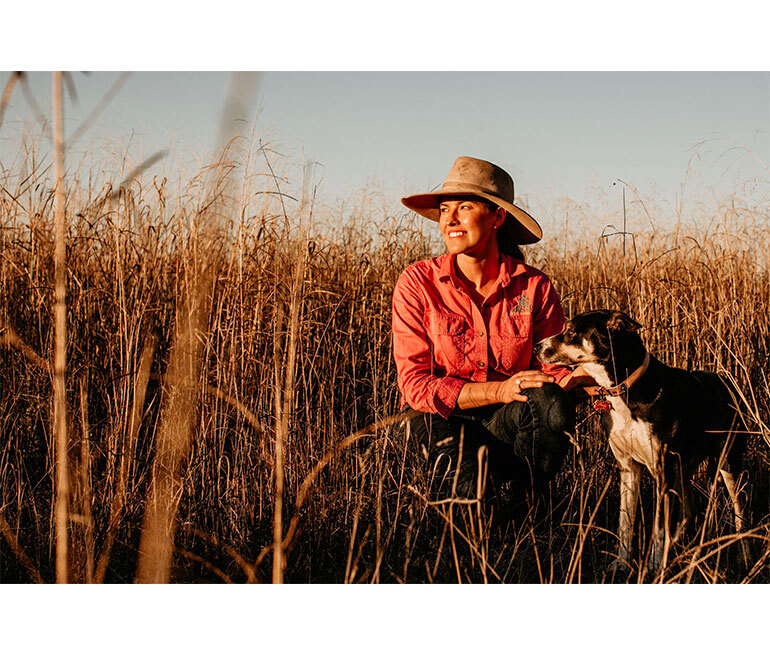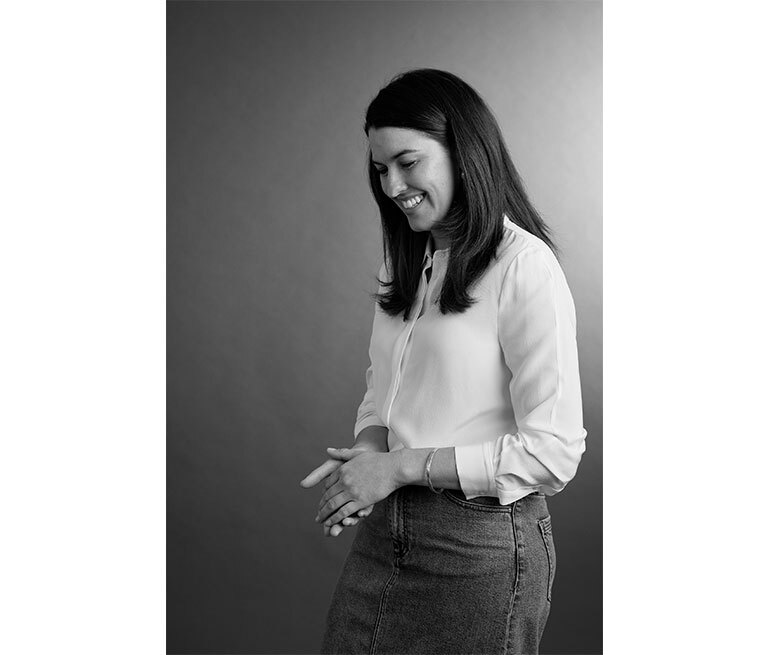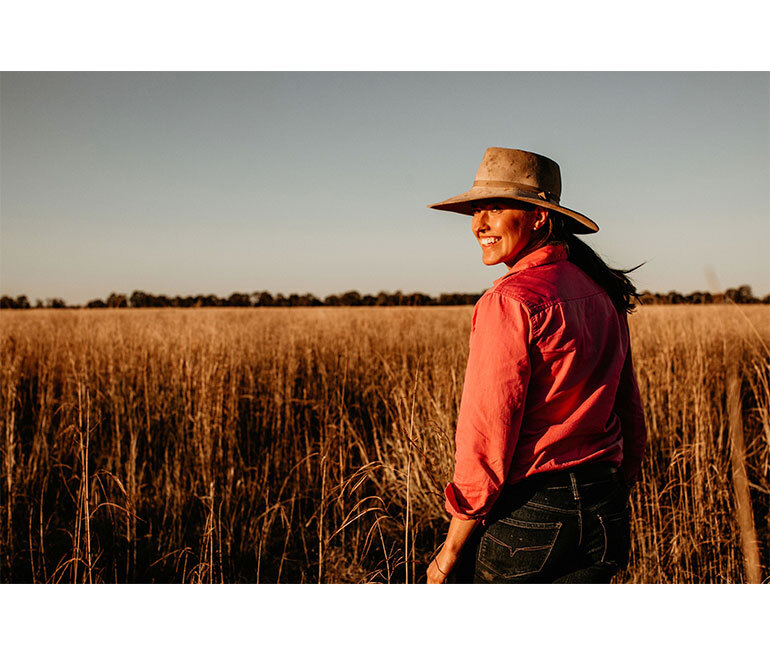From cotton scrubs to cotton fields: Tamara Uebergang’s journey from nurse to farmer

It was only a few years ago that Tamara Uebergang was busily caring for desperately sick children in the intensive care unit of a major London hospital.
As a nurse, Tamara’s days were long, draining and often confronting. Curve balls were thrown at her. Puzzling medical mysteries needed solving. Acts of kindness and sadness played out before her eyes.
But Tamara has now traded the high-pitched beeps of life support machines for the low rumble and grumble of machinery at her family’s farm, Berwyndale Pastoral, at Miles on Queensland’s Western Downs.
And while nursing was one of the greatest privileges of her life, it was under the big skies and in the wide, open spaces of the Downs that Tamara felt most at home – like she was where she was meant to be, carefully tending to the natural environment and growing successful crops.
A family’s love for the land
Tamara’s parents, Bruce and Margaret, have farmed on their property for decades. The operation grows a range of crops, including cotton, mung beans and sorghum in the summer, and wheat and chickpeas in winter. The Uebergangs also run a small herd of cattle on their property.
For Tamara, her family has grown cotton for as long as she can remember, but the modern farm is a far cry from memories of chipping weeds and playing in the fluffy cotton at picking. Technology has presented new opportunities and a totally different way of life.
“My grandfather was a pioneer in this district, overseeing an immense amount of change,” Tamara said.
“It’s a legacy I am humbled to contribute to.
“My father has always been passionate about operating efficiently, and with his passion for soil health, he found the best way to align his life goals with his job was to become an organic farmer.”
And so, the family property was an organic farm for many years. But in time, as the organic market grew considerably, the viability of operating a wholly organic farm reduced. So, in about 2010, Tamara’s family diversified their operation, while still retaining its organic and soil health principles.
When it comes to growing cotton, Tamara said there were a number of factors that influenced their decision to plant the crop each season, including water availability, climate outlook, stored water, paddock rotation and market influences.
“I do really enjoy growing cotton,” Tamara said.
“I like the fact it is a crop that is not perishable, it goes to serve something that we all need and enjoy – clothing, a nice set of sheets, a fluffy towel. It is one product that’s literally essential - shelter is one of our most fundamental needs.
“It is fascinating that cotton can be spun, woven and manufactured for the highest degree of luxury, or for the most basic protection.”
As the world’s appetite for sustainably produced goods grows, Tamara said she was proud to contribute to an industry that prioritised responsible practices.
“One trend I have recognised as being of significant importance is sustainability. As wholly renewable and compostable products, natural fibres have huge opportunities in this market,” she said.
“When I learned of the horrors of man-made fibres, I was even more proud to grow cotton.
“I see that customers care about the origin of their clothes and their environmental and human impact; we've got a great story to tell and we need to work hard to fight misconceptions about Aussie cotton.”
On-farm, Tamara and her family are implementing the Australian cotton industry’s best practices program, myBMP.
“Our family holds stewardship as a core value, and I feel that a lot of the things we do is because it’s just the right thing to do and because it satisfies a moral code if you consider yourself a custodian of the environment,” she said.

From cotton scrubs to cotton fields
Tamara’s career as a farmer came after years working on the frontline of healthcare.
After graduating university as a qualified nurse in 2007, Tamara set out to explore the world and care for others.
She spent years working in London caring for sick children in intensive care, before returning to Australia to work for the Royal Flying Doctor Service, and then casually at Miles’ hospital.
“Nursing is one of the highest privileges of my life, however, it can be personally taxing,” Tamara said.
“I love home, my family, the farm, and I have always loved plants. To have this opportunity to return to my family farm means a lot to me. My family has been extremely supportive.
“Growing up on a farm doesn’t necessarily furnish you with the skills you need to be successful in an agricultural business; so, between careers I studied agribusiness at Marcus Oldham College because I needed to acquire some business acumen to contribute to the operation before I was qualified to apply for the position of farm manager.
“It is really lovely to now have a balance – to be able to duck in to Miles and still do a couple of days nursing, but then to spend time on the property and be a farmer. Friends often remind me I am ‘living the dream’.”

At home on the Downs
Tamara has found the cotton industry to be open and welcoming.
“A rising tide lifts all boats; it is wonderful that the industry is supportive of new ideas and change,” she said.
“People are certainly very open with information and there is a sense of a team, of people being open and helpful.”
That collaboration within the industry has inspired Tamara to share her experience as a cotton grower on social media, so a broad cross-section of society can learn about the sector.
“I like sharing things on Instagram that bring a little joy, and hopefully they make others happy and more informed,” she said.
“When I catch up with my friends in the city that don’t have an agricultural background, they ask what we are up to on the farm; and so, by posting little snippets on Instagram it is helping to bridge a widening gap.”
Tamara’s passion for understanding and communicating about agriculture saw her awarded a Nuffield Scholarship in 2019, with her research initially looking at alternative energy and carbon neutrality, then diving into the cotton supply chain.
“The opportunity to engage with optimistic, curious and innovative people has impacted me in ways I’m yet to fully realise,” Tamara said.
“It’s all been amazing.”
Words by Robert Virtue
This story appears in the Spring 2020 edition of Graziher magazine.
